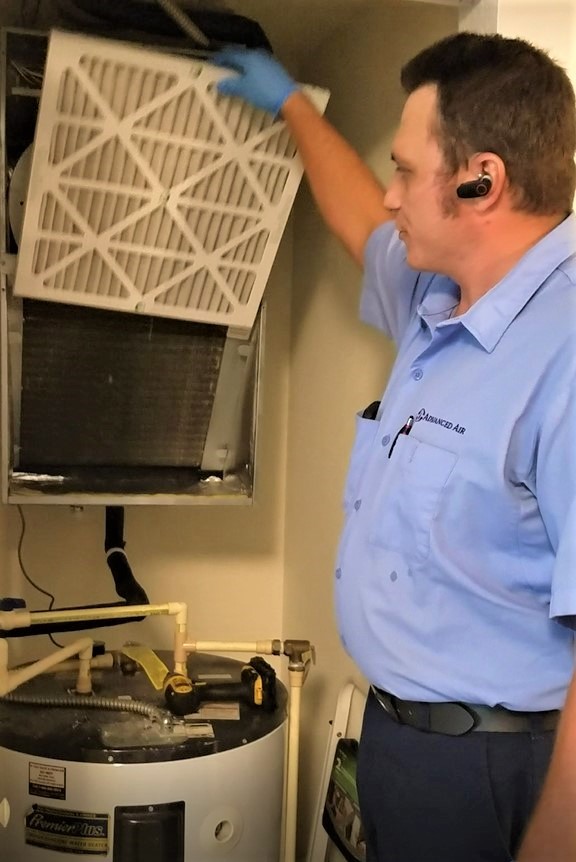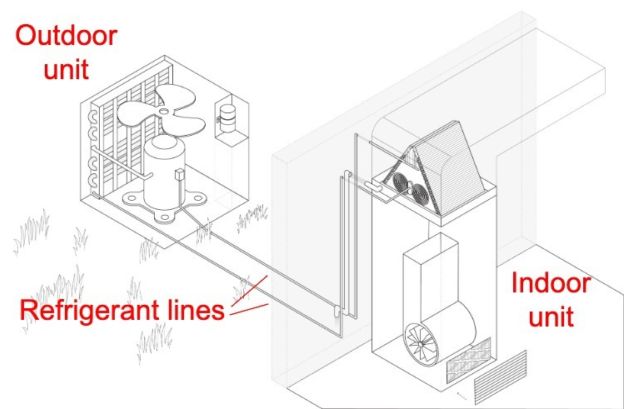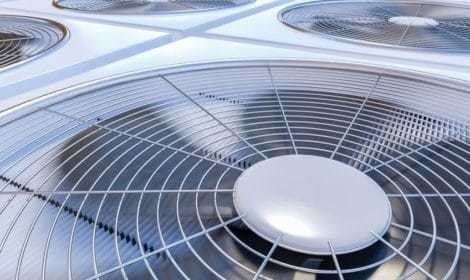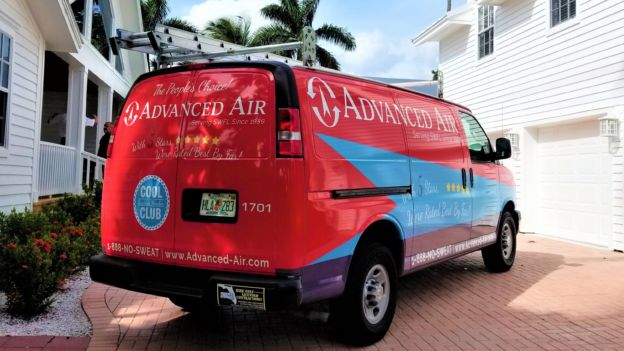Why Is My Air Conditioner Overheating?
October 04, 2022
When an air conditioner overheats, there’s a risk of damage to internal parts. Worse, your AC might even shut down, which can be frustrating on a hot, humid day.
So, what causes an AC to overheat in the first place? Typically, it’s due to a particular part that’s overworking itself, putting strain on the rest of the system.
The four most common problems that lead to overworked parts include:
- A clogged air filter
- A low refrigerant level
- A dirty outdoor unit
- A burnt-out capacitor
In this blog, we’ll address each issue and how you can prevent it in the future.
Want Your AC Back to Normal ASAP?
Contact Advanced Air! We’re known for our prompt same-day AC repair services, and we also answer emergency requests. Our reliable technicians will resolve your overheating problems within a day and always provide you with an upfront quote before any work beings.
Call us at (888) 853-5143 for 5-star cooling service!
A Clogged Air Filter

Change out your air filter if it looks like this.
Your AC’s blower motor (located inside your AC’s indoor unit) pulls in warm air and then blows out cool conditioned air. This motor is vital for any AC’s operation because it’s how cold air circulates. When the blower motor overheats, it shuts down, and your AC stops working.
How does the blower motor overheat? Typically, due to a clogged air filter.
When your air filter is caked in dust, dirt, hair, and other indoor air contaminants, it blocks the flow of air through your AC system. This forces the blower motor to work harder than normal to pull in warm air, putting stress on the system.
An apt analogy is trying to breathe in through a straw. It would take much more effort and is only marginally effective. Similarly, the blower motor has to work much harder to get enough air with a dirty air filter. It’ll overheat, and your AC will either shut down or begin to cool your home less efficiently, thereby increasing your energy bills.
The fix:Check your air filter every 2 months and replace it if dirty.
A Low Refrigerant Level

Without enough refrigerant, your AC will not work.
Low refrigerant can also cause your AC to overheat.
Refrigerant is the “lifeblood” of your AC because it’s the substance that actually removes heat from your indoor air. However, if there isn’t enough refrigerant in your system, it cannot effectively remove enough heat from the air to properly cool your home. Your AC then runs longer cycles to compensate, causing it to overheat.
Refrigerant is a closed-loop system, so your AC would have a low refrigerant level only if there is a leak. Learn more in "How Often Does a Central AC Unit Need Charging with Refrigerant?".
The fix: Have a professional inspect, repair, and recharge your AC. Replacing the system might be more cost-effective depending on the type of refrigerant your AC system uses. Learn more about the different generations of refrigerant in "R-410A vs. R-32 Refrigerant: Which is Better for My Florida Home?".
A Dirty Outdoor Unit
An air conditioner’s outdoor unit holds the compressor, which is an integral part of any AC system because it pumps the refrigerant (AKA “lifeblood” we mentioned above) throughout the system. Without a functional compressor, an air conditioner cannot cool a home.
Learn more about your air conditioner’s compressor in "What Does a Central AC Compressor Do?".
When grime, dirt, and leaves cover the outdoor unit, it can no longer effectively transfer heat from your indoor air to dump outside. So, if your outdoor unit’s coils are dirty, the compressor might run harder and longer to compensate, then it overheats and shuts down. Even if the air conditioner doesn’t overheat, it’s consuming much more energy than needed.
The fix: Contact a professional HVAC technician to clean your outdoor unit’s coils, resolving the overheated compressor problem.
A Burnt-Out Capacitor

Is a burnt-out capacitor causing your AC to overheat?
Air conditioners have an electrical part called the “capacitor”, which is essentially a big battery. It helps kickstart the indoor blower motor, compressor, and outdoor unit’s fan motors with an extra jolt of electrical “juice.” ACs use the most amount of energy to start up (hence why we don’t recommend homeowners completely shutting down their AC systems to save money), so the capacitor is critical for providing a boost without the system needing to make that jump the entire time it runs.
When one of the AC’s capacitors overheats, the motor it assists can no longer start up, and the system can no longer properly function.
Capacitors usually overheat because of:
- A malfunctioning relay switch in the thermostat
- A power surge with an overwhelming electrical circuit
- Old age makes the part less efficient
The fix: if you suspect that the capacitor is the culprit for your overheating air conditioner, contact an HVAC technician to replace the part.
Get 5-Star AC Service with Advanced Air!

Contact Advanced Air for a reliable AC repair in Southwest Florida.
If you want a prompt AC repair to address your overheating system, contact Advanced Air today. We have convenient regular and emergency service hours from Monday through Saturday.
To prevent future issues, we recommend bi-annual air conditioner maintenance. During this maintenance service, we’ll complete the following tasks so that you have peace of mind that your AC won’t break down on you:
- Replace your air filter
- Check the refrigerant level
- Clean your outdoor unit
- Inspect the capacitors
Beyond an inclusive tune-up, our maintenance plan comes with other perks, such as HVAC service discounts and priority service.
Call us at (888) 853-5143 or schedule below to see why we’re the leading HVAC company in Southwest Florida, with more 5-star reviews than anyone else.
- Posted in:
- Air Conditioning

